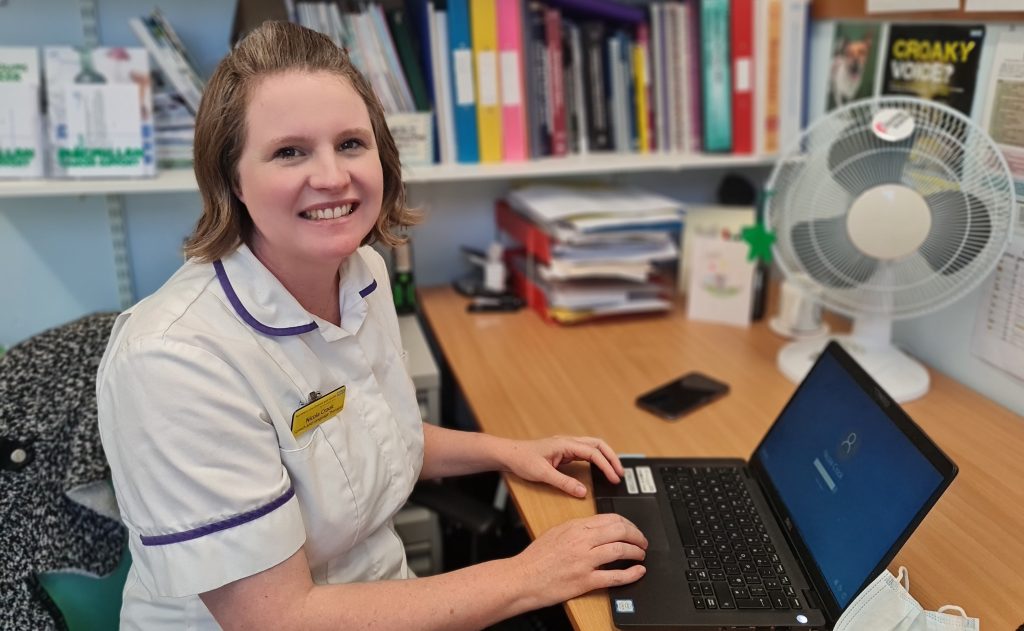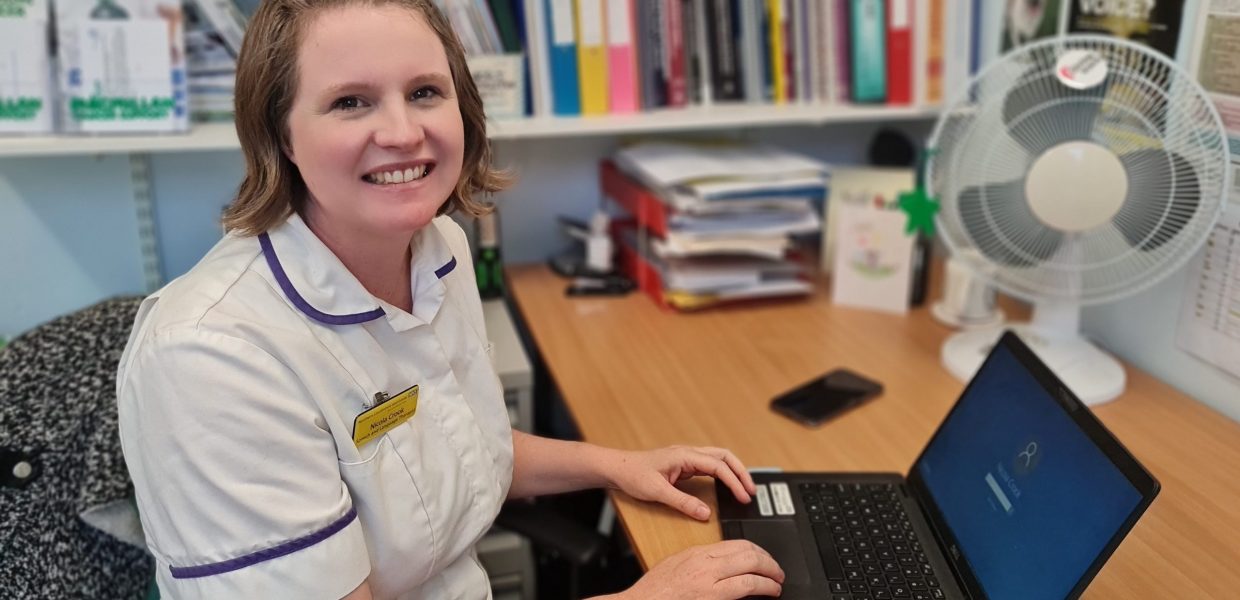Three years ago, 37-year-old Neil* suffered a stroke so severe that his doctors told him that he was lucky to have survived.
The former Paratrooper and owner of a successful fitness group, was warned it was unlikely he would ever speak or walk again.
However, as a result of his sheer determination – and the support of our Speech and Language team and his family – Neil is making a remarkable recovery.
Jasmin Kirk, Specialist Speech and Language Therapist supported Neil to wrote learn his vows just three months after he had suffered his stroke and he was able to deliver these perfectly on his wedding day.
He is now not only able to walk short distances unaided and recently he even climbed Mam Tor.
His speech therapy has been led by Specialist Speech and Language Therapist Dr Nicola Crook, our Clinical Lead SLT for Stroke patients.

She recently did a PHD at Sheffield University which investigated the feasibility of delivering intensive therapies in the NHS using efficient methods, after winning one of 20 coveted places part-funded by the National Institute of Health Research Funding.
And now she has used that learning to create an innovative intensive programme of therapy for Neil.
Intensive therapy following severe stroke
She said: “The latest research suggests that having 20 hours of intensive therapy is the most effective treatment, so we reconfigured our way of working to put together a bespoke plan for Neil.”
The programme was delivered in two intensive blocks, using a combination of two speech therapists and two assistants, as well as digital tools such as communication apps.
Over the space of a month, the team worked with Neil to provide the 20 hour course, with a mix of outpatient appointments and home visits.
Neil and Emma also carried out additional exercises themselves and had further support from an independent practice programme.
Although it’s recommended that patients take a day off from therapy each week during the programme, Neil’s determination saw him doing exercises every day for between 10 minutes and an hour.
As a result, he has gone from being unable to read and only being able to say yes or no – albeit usually the wrong way around – to being able to read and retain small amounts of information and being able to hold a conversation.
I am so proud of Neil and he progress he has made. It’s not been easy for him but he is so determined to succeed and it’s been wonderful to see his confidence grow
Dr Nicola Crook, Specialist Speech and Language Therapist
Neil said: “The biggest thing I have got [from doing the programme] is confidence.
“I used to avoid answering the door but now, if we have a parcel delivered, I know I can say what I need to say. I know I can do it.
“I like being able to make small talk with people I see out walking their dogs.
“I know now that that I need to start speaking to more people, so we’re making an effort to get out and see the family.”
Dr Crook added: “I am so proud of Neil and the progress he has made. It’s not been easy for him but he is so determined to succeed and it’s been wonderful to see his confidence grow.
“He was the first person we offered this intensive treatment programme to and it has proved so successful we have since been able to offer it to further patients.
“Given the intensity of the programme, it is not something that is suitable for all our patients and also depends on our stroke Speech and Language Therapy team being fully staffed to deliver this intensity of therapy.
But for those patients who are suitable and motivated, I believe that it can be well worth the investment.”
His proud wife Emma also described Neil’s recovery so far as “amazing”.
She said: “He has spent the last couple of years shying away from people but doing this speech therapy programme has made him more confident.
“When he first started he didn’t want to see people and could maybe only say two or three words together.
“Now he’s able to say a lot more, he has more confidence – even with people he doesn’t know.
“We know we still have a long way to go but I know he can do it.”
*Please note that Neil has asked that he and his family are not further identified. No photographs are available and he has asked that only his first name is shared
The impact of a stroke
A stroke can have a huge impact on a patient’s speech and movement, causing significant damage to the areas of the brain responsible for controlling these functions.
As a result, relearning these skills for some people is an exhausting and slow process, as the brain has to find new ways of making the connections needed without using the area damaged by the stroke.
Dr Crook described that for some people, relearning these skills is a little like a road closure.
The quickest route – which you’re familiar and comfortable with – is no longer accessible and your brain needs to make a diversion.
“Going round” the damage in this way will take longer and you may get lost or confused along the way but, as you continue to take this “new route” it becomes easier and more familiar.
Eventually, you no longer try and use the old route and the new one becomes the norm – and getting you to this point is what the therapy is all about.
